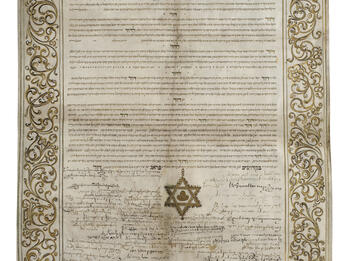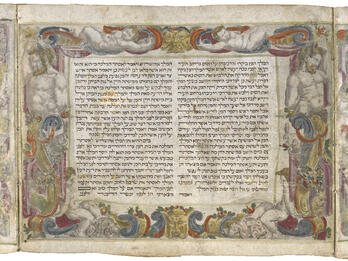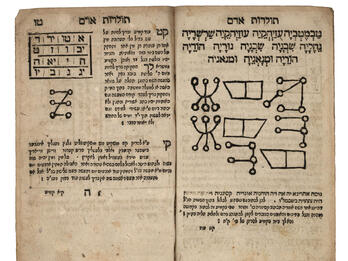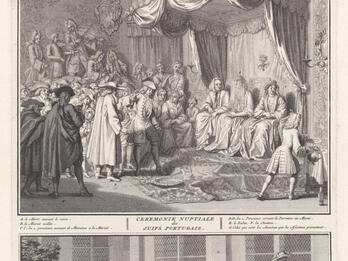Moses Cordovero
Moses Cordovero was a leading kabbalist in Safed, a disciple of Joseph Karo, and a teacher of Isaac Luria. Although his birthplace is unknown, he was probably of Spanish origin. He began studying kabbalah at age twenty and completed his first large systematic work, Pardes rimonim (Garden of Pomegranates), at twenty-seven. Cordovero synthesized the different trends of kabbalah up to his time, endeavoring to construct a speculative kabbalistic system. He was also influenced by medieval philosophers and acknowledged the utility of philosophy in other works, such as Elimah rabbati. His Tomer Devorah (The Palm Tree of Deborah) laid the basis for the kabbalistic ethical literature that flourished in the sixteenth through eighteenth centuries and influenced many later kabbalistic moralists. In another work, Or ne‘erav (Pleasant Light), Cordovero explained the importance of studying kabbalah and censured those who studied it without the necessary prior knowledge. His commentary on the Zohar, Or yakar, remained unpublished until the twentieth century.
Entries in the Posen Library by This Creator
Primary Source
Title Page of Moses Cordovero’s Tefilah le-Moshe (Prayer of Moses)
Primary Source
Pardes rimonim (Garden of Pomegranates)
Primary Source
Tomer Devorah (The Palm Tree of Deborah)
- The quality of humility includes all qualities…





